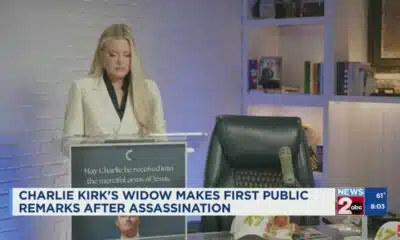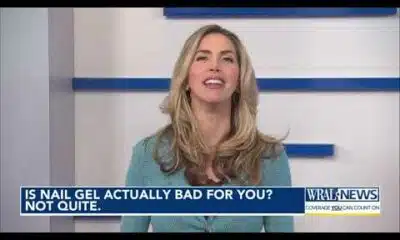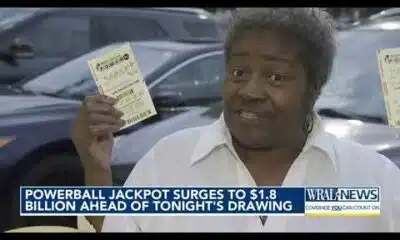News from the South - Texas News Feed
Texas bill allowing homes on smaller lots killed in House
“Texas House Democrat kills bill to allow smaller homes on smaller lots” was first published by The Texas Tribune, a nonprofit, nonpartisan media organization that informs Texans — and engages with them — about public policy, politics, government and statewide issues.
Sign up for The Brief, The Texas Tribune’s daily newsletter that keeps readers up to speed on the most essential Texas news.
A proposal to allow smaller homes on smaller lots in Texas cities — part of a slew of bills intended to tame the state’s high home prices and rents — died by a procedural move in the Texas House Sunday.
Senate Bill 15 — a top priority of Lt. Gov. Dan Patrick, who leads the Senate — would have reduced the amount of land cities require for single-family homes in new subdivisions. That would give homebuilders the flexibility to build smaller homes on less land, reducing the final cost of the home.
Some city officials as well as neighborhood activists who oppose new housing balked at the idea, arguing the proposal would be an undue incursion on cities’ ability to say what kinds of housing can be built and where.
The bill included narrow language designed to prevent it from taking effect within a mile of a police training center in Dallas County. Rep. Ramon Romero Jr., D-Fort Worth, raised the proposal to kill the bill, stating that language was out-of-bounds. The proposal was upheld, preventing the House from further discussing the bill.
Romero, a former member of Fort Worth’s city planning and zoning boards, said he wasn’t comfortable with the state weighing in on local rules that say how much land single-family homes must sit on. He also had concerns about whether homes allowed under the bill would create nuisances, such as runoff and traffic, for existing residents.
Romero, who owns a business that does residential masonry work, said he also wasn’t convinced that the bill would result in lower home prices, pointing to pricier homes built in recent years on smaller lots in Austin.
“It’s already been proven that just because you have smaller (homes) does not immediately equate to more affordable (homes),” Romero said in an interview. “So if the argument is that that’s what it is, then I’d say, show it to me.”
Allowing smaller homes on less land in Texas has generally been associated with lower home prices. Beginning in the late ‘90s, Houston reduced how much land the city requires single-family homes to sit on. Those reforms resulted in tens of thousands of new homes built on smaller lots, and housing advocates and researchers have credited that building boom with helping to keep the city’s home prices in check, especially when compared to other major U.S cities. Those homes tended to have lower values than traditional single-family homes on larger lots, research from New York University’s Furman Center for Real Estate and Urban Policy shows.
State Rep. Gary Gates, a Richmond Republican who carried the bill in the House, said he’s looking for ways to resurrect the proposal.
For example, it’s possible the proposal could find new life by being attached to another bill. But doing so would be difficult given that the legislative session ends June 2.
The bill sought to reduce the ultimate cost of a home by reducing how much land homebuyers would be required to purchase. Building smaller homes on smaller lots would also allow more homes to be built overall — chipping away at the state’s housing shortage, a key driver of the state’s high housing costs, the bill’s proponents argued.
“When a single legislator kills a bill that would help Texans find an affordable place to live, it’s not just out of touch, it’s a slap in the face to hardworking families trying to stay afloat,” said Nicole Nosek, who chairs Texans for Reasonable Solutions, a group that has pushed several housing bills this session.
Major cities in Texas tend to require single-family homes to sit between 5,000 and 7,500 square feet of land, according to a Texas Tribune analysis. The bill would have barred cities from requiring homes in new subdivisions to sit on more than 1,400 square feet. That provision wouldn’t have applied in existing neighborhoods, and new subdivisions would have to sit on at least five acres of land.
Given higher home prices and high interest rates, reducing the amount of land is necessary to give would-be homebuyers a path to homeownership, Gates said.
“If you’re in a house that you bought a number of years ago, life looks good to you,” Gates said of the bill’s opponents. “We don’t live in that world anymore.”
The proposal is part of a package of GOP bills aimed at reining in the state’s high home prices and rents by allowing more homes to be built. Texas builds more homes than any other state but not enough to keep up with demand amid the state’s population boom.
The state needs 320,000 more homes than it has, according to an estimate by the housing advocacy group Up For Growth. As a result, home prices and rents have skyrocketed, housing advocates and experts say.
Lawmakers this year have advanced proposals aimed at reducing red tape and local regulations to let more homes be built. Legislators have pushed bills to allow apartments and mixed-use developments along retail and commercial corridors and additional dwelling units in the backyards of single-family homes.
They’ve also pushed legislation to make it harder for landowners to stop new homes from being built near them and to allow homebuilders to more quickly obtain city building permits. None of those bills has yet reached the governor’s desk.
House lawmakers are also expected to take up other housing affordability bills Sunday. Those bills aim to make it easier to convert vacant office buildings into residences and encourage the construction of smaller apartments. They also would bar cities from outlawing manufactured homes and relaxing rules in college towns that restrict how many unrelated adults can live in a home.
On Sunday, the Senate approved House Bill 24, a priority for House Speaker Dustin Burrows. It aims to make it more difficult for property owners to block new housing.
First round of TribFest speakers announced! Pulitzer Prize-winning columnist Maureen Dowd; U.S. Rep. Tony Gonzales, R-San Antonio; Fort Worth Mayor Mattie Parker; U.S. Sen. Adam Schiff, D-California; and U.S. Rep. Jasmine Crockett, D-Dallas are taking the stage Nov. 13–15 in Austin. Get your tickets today!
This article originally appeared in The Texas Tribune at https://www.texastribune.org/2025/05/25/texas-housing-costs-bills-tiny-homes-office-buildings-apartments/.
The Texas Tribune is a member-supported, nonpartisan newsroom informing and engaging Texans on state politics and policy. Learn more at texastribune.org.
The post Texas bill allowing homes on smaller lots killed in House appeared first on feeds.texastribune.org
Note: The following A.I. based commentary is not part of the original article, reproduced above, but is offered in the hopes that it will promote greater media literacy and critical thinking, by making any potential bias more visible to the reader –Staff Editor.
Political Bias Rating: Center-Right
This article presents the issue of Texas housing legislation with a generally factual tone, focusing on the legislative process and the perspectives of key political actors, notably Republican Lt. Gov. Dan Patrick and GOP state Rep. Gary Gates, who support deregulation to increase housing supply. The coverage includes viewpoints of opponents, such as Democratic Rep. Ramon Romero Jr., and community concerns, maintaining a balanced presentation. The article highlights Republican efforts to ease restrictions as solutions to affordability and contrasts them with local government and activist resistance. Overall, the framing slightly favors the Republican legislative agenda by emphasizing market-based approaches and the urgency of addressing housing shortages.
News from the South - Texas News Feed
Austin becoming FEMA-approved emergency alert authority, planning 1st test alert
SUMMARY: On Monday, Sept. 29, Austin will conduct a test of the Integrated Public Alert and Warning System (IPAWS), becoming a FEMA-approved alerting authority able to send emergency alerts via Wireless Emergency Alerts (WEA) to cell phones and Emergency Alert System (EAS) messages to TV and radio. This coordinated test at 3 p.m. will cover the city across its three counties—Travis, Hays, and Williamson. The alerts will clearly indicate a test and require no action. IPAWS allows authenticated, geotargeted emergency notifications without subscription, enhancing public safety communication. More details are available at ReadyCentralTexas.org and Ready.gov/alerts.
The post Austin becoming FEMA-approved emergency alert authority, planning 1st test alert appeared first on www.kxan.com
News from the South - Texas News Feed
La Niña now expected to last all winter
SUMMARY: For the first time this year, La Niña is now forecast to last throughout the entire winter, with NOAA’s Climate Prediction Center giving it a 54% chance for December-February. Previously, ENSO Neutral was favored for winter. La Niña occurs when sea surface temperatures in the eastern equatorial Pacific are 0.5ºC below average, typically pushing the Pacific Jet Stream north, causing drier, warmer conditions in the southern U.S. and wetter areas in the Pacific Northwest. Last winter, a weak La Niña brought a record warm December but cooler January-February, below-average rainfall, snow in Austin, and more freezes than normal. Another mild La Niña winter is expected for Central Texas.
The post La Niña now expected to last all winter appeared first on www.kxan.com
News from the South - Texas News Feed
Texas high school football scores for Friday, Sept. 12
SUMMARY: Lake Travis dominated Midland Legacy 59-13 in a spirited farewell to the old Cavalier Stadium before renovations force home games to move to Dripping Springs High School. Across Central Texas, notable district wins included Anderson over College Station (37-14), Bowie against Glenn (38-14), and Dripping Springs edging Harker Heights (31-26). High-scoring games saw McNeil top Westwood 70-45, and Hutto defeat Cedar Ridge 63-49. Close contests included Vista Ridge’s 30-29 win over Round Rock and Austin LBJ’s 34-33 overtime victory against Wimberley. The article also features an extensive list of scores from other Texas high school football games.
The post Texas high school football scores for Friday, Sept. 12 appeared first on www.kxan.com
-
News from the South - North Carolina News Feed6 days ago
Reagan era credit pumps billions into North Carolina housing | North Carolina
-
News from the South - Alabama News Feed7 days ago
Amid opposition to Blount County medical waste facility, a mysterious Facebook page weighs in
-
News from the South - South Carolina News Feed6 days ago
South Carolina’s Tess Ferm Wins Miss America’s Teen 2026
-
News from the South - Kentucky News Feed6 days ago
3 states push to put the Ten Commandments back in school – banking on new guidance at the Supreme Court
-
Local News6 days ago
Duke University pilot project examining pros and cons of using artificial intelligence in college
-
News from the South - West Virginia News Feed5 days ago
Protesters in D.C. flood the streets demanding an end to Trump’s military deployment
-
News from the South - Missouri News Feed5 days ago
1587 Prime gives first look at food, cocktail menu ahead of grand opening in KC
-
News from the South - North Carolina News Feed7 days ago
Powerball surges to $1.8B ahead of Saturday's drawing











































